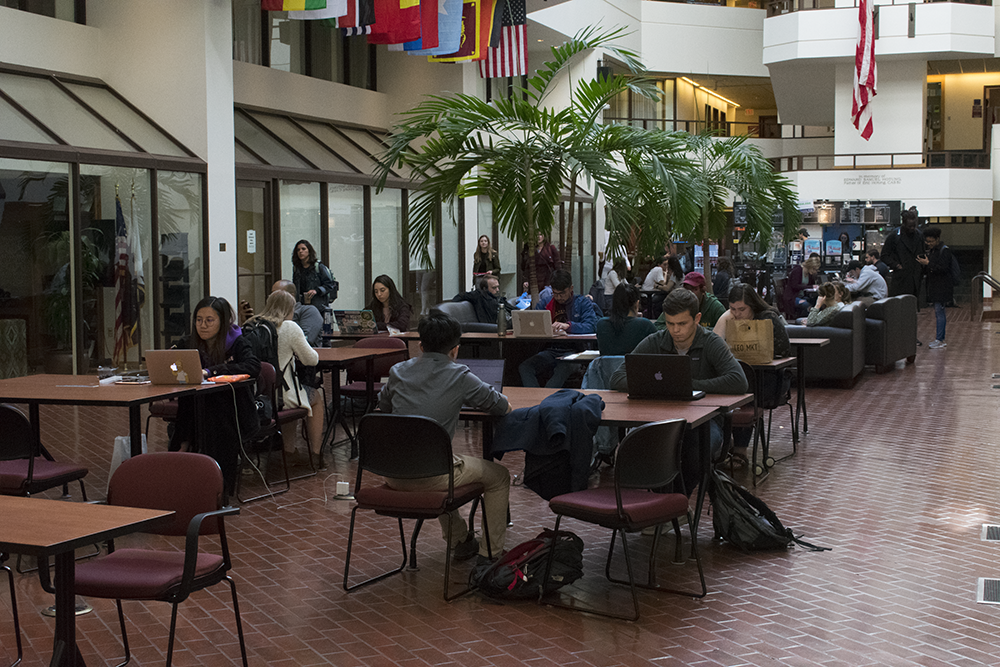The Center for Latin American Studies (CLAS) held an event on Nov. 16 with members of the Inter-American Development Bank (IDB), to discuss strategies for growth and transformation of the Andean region.
The IDB, which provides funds to Latin American and Caribbean countries, published a research report earlier this year regarding the Andean region. The report discusses the effects of the Paris Climate Accords, the COVID-19 pandemic and social inequalities. Adjunct Professor and Regional Economic Advisor for the IDB Osmel Manzano, IDB Manager for the Andean Department Miguel Coronado and current Georgetown Americas Institute fellow Antoni Estevadeordal spoke at the event.
The Andean region, which consists of Venezuela, Colombia, Ecuador, Bolivia and Peru, has long been a center for tourism, agriculture, mining and oil drilling. Manzano discussed the effects of global warming, a more digitized landscape and the continuous growth of the agriculture sector, specifically noting that many of the threats facing the region can be turned into opportunities to increase its productivity.
“The region has challenges. By 2050, based only on current actions, growth will be lower. The positive message we wanted to say is that if you do the right policies you can grow more than what you were expected to grow,” Manzano said at the event. “We need to do things now. You cannot wait. We have to think here that these are more societal policies than government policies. These need to be carried out by many administrations but also beyond administrations.”

Manzano said countries in the Andean region should implement societal policies of diversifying production while also addressing infrastructure, institutional and climate challenges.
Manzano added that his research team and other members of the IDB found institutional issues in the Andean region such as problems with digitalization and women’s rights, which he said need to be addressed.
“We need to improve women’s access to key resources, such as technical education. We have to think about institutional frameworks that have a gender perspective and provide support to enhance labor practices,” Manzano said. “One sector with a huge gender gap was mining, but there are good companies that are changing that. So the issue is changing the culture about hiring.”
Estevadeordal talked about the challenges of globalization, saying that there is a lack of trade and partnerships between Latin American countries and the rest of the world in a phenomenon called “slowbalization.”
“Unless these countries, unless the region, take very seriously what’s happening in the rest of the world, proactively connecting to that, it’s going to be very difficult to take advantage of some of these opportunities,” Estevadeordal said at the event. “I think that’s to be seen as a vision for the future.”
One member of the audience asked about balancing development in the Andean region with managing environmental concerns such as deforestation in the Amazon Rainforest. Manzano said more work has to be done in the private sector to better protect the environment while promoting development, pointing to a law recently passed by the European Union that limits imports of coffee produced by companies connected to deforestation.
“Consumers are not willing to pay more for things that say ‘Amazon friendly,’” Manzano said. “And actually, in Europe you have more response. But in the United States, no. So if the consumer does not give the signal, it’s really hard for the producer.”
Coronado added that politics are playing a smaller role in the issue, with less attention to growth and environmental concerns in Latin America.
“At least in the region, we should be going back to try to tackle the different issues that they have there. And it is a huge debate,” Coronado said at the event. “They’re asking who is going to put the money into the projects. And this when they’re starting to look at each other to say we have to bring people to the table to see any other issues we have, and deforestation is one of the bigger problems that we had for so many years.”
Manzano said there is a new IDB initiative to protect the Amazon and that the goal is to preserve the environment while also promoting economic growth.
“There are people there and they have needs, they need water, but that you’re doing in a sustainable way,” Manzano said.




















